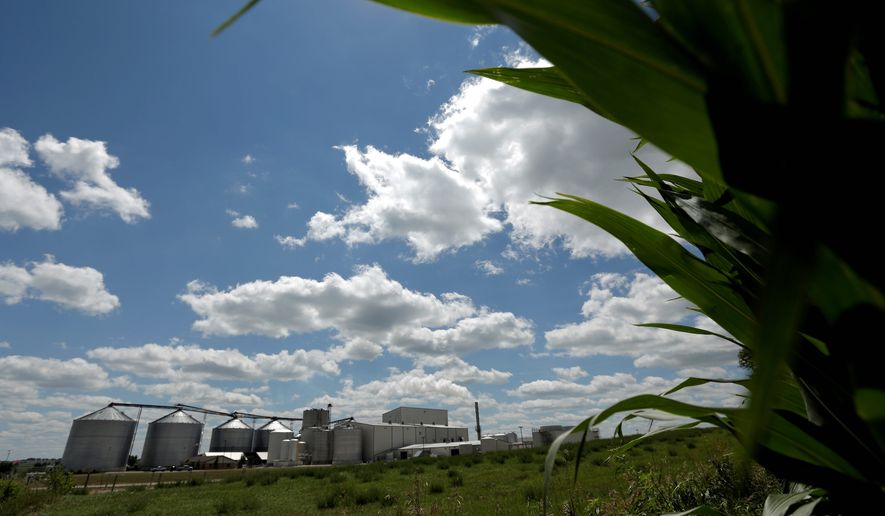Five months into the Obama administration, the Environmental Protection Agency was supposed to complete a study looking at ethanol’s effect on American air quality.
Nearly eight years later, the agency still hasn’t completed its work, and both sides of the biofuels debate are now calling on the Trump administration to issue the report and are banking on the fact that the results will bolster their arguments.
The years-long delay came into the spotlight earlier this year when Sen. John Barrasso, Wyoming Republican and chairman of the Senate Environment and Public Works Committee, sent a letter to EPA Administrator Scott Pruitt urging him to comply with federal law and complete the report. His letter came just days after the EPA issued new requirements for the blending of ethanol with gasoline, largely siding with the biofuels industry and rebuffing critics — including Mr. Barrasso — who argued the ethanol mandate should be reduced dramatically.
“A growing body of independent academic research has also documented the RFS’ impacts on air, water and land quality, wildlife habitat, and other sensitive ecosystems,” the senator wrote. “EPA cannot ignore the will of Congress and the requirements of the Clean Air Act” by not completing the report.
Mr. Barrasso asked that EPA complete the air quality study and another report on ethanol’s “impacts to the environment and rescue conservation” by Sept. 18, 2018. The latter study is supposed to be completed every three years, but the EPA has issued it only once, in 2011.
The air quality study was due to be completed by May 19, 2009.
In a statement, an EPA spokesperson would not offer clarity as to why the agency is so far behind schedule, or whether the Trump administration will make the reports a priority. He only said the EPA would respond to Mr. Barrasso through the appropriate channels.
The two studies are just one part of a much broader fight that’s now become an intra-party war between Republicans. President Trump has been an outspoken supporter of the Renewable Fuel Standard (RFS), the federal law that requires the blending of ethanol with gasoline supplies each year. He’s joined by Sen. Chuck Grassley, Iowa Republican, and other members of the GOP from states that have benefited greatly from the domestic ethanol sector.
On the other side, Mr. Barraso, Texas Sen. Ted Cruz, and others have pressured the administration to slash the RFS, arguing, among other things, that it has an adverse impact on the oil and gas industry.
In his letter, Mr. Barrasso didn’t explicitly cite air quality concerns as a potential reason why the RFS should be reduced. But it’s clear any study showing biofuels have a negative impact on air would provide serious ammunition for his side of the debate.
The ethanol sector, however, believes the same thing. The industry’s leading trade group, the Renewable Fuels Association, seized on Mr. Barrasso’s letter and also called on the EPA to do its work.
“It may come as a surprise, but we agree with Sen. Barrasso that updated studies and analyses of ethanol’s environmental impacts are needed,” said RFA President Bob Dinneen. “We have absolutely nothing to hide, and nothing to be afraid of. We believe EPA should complete the agency’s congressionally mandated studies on the environmental impacts of the RFS, and believe the results will confirm that biofuels like ethanol offer enormous environmental benefits.”
There’s been pressure on the EPA from all sides to finish the reports, and it’s clear the blame falls on both the Obama and Trump administrations. In August 2016, the EPA inspector general released a report saying the national debate on ethanol policy is missing key information.
“The EPA does not have an assessment that meets the requirement to identify whether RFS creates any impacts on air quality and, thus, take required measures to mitigate impacts,” the inspector general wrote. “This information is needed to fully inform the EPA, Congress and other stakeholders of the environmental impacts of U.S. biofuel policy.”
In the meantime, there seems to be conflicting data. In his letter, Mr. Barrasso cited EPA data that seem to show corn ethanol produced as a result of the RFS has “higher lifecycle greenhouse gas emissions than gasoline.”
But an Agriculture Department report last January, just before the Obama administration left power, said that “GHG emissions associated with corn-based ethanol in the United States are about 43 percent lower than gasoline when measured on an energy equivalent basis.”
“This report provides evidence that corn ethanol can be a GHG-friendly alternative to fossil fuels, while boosting farm economies,” said then-Agriculture Secretary Tom Vilsack.
• Ben Wolfgang can be reached at bwolfgang@washingtontimes.com.




Please read our comment policy before commenting.